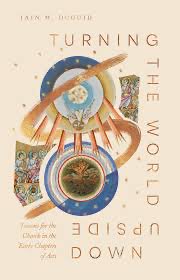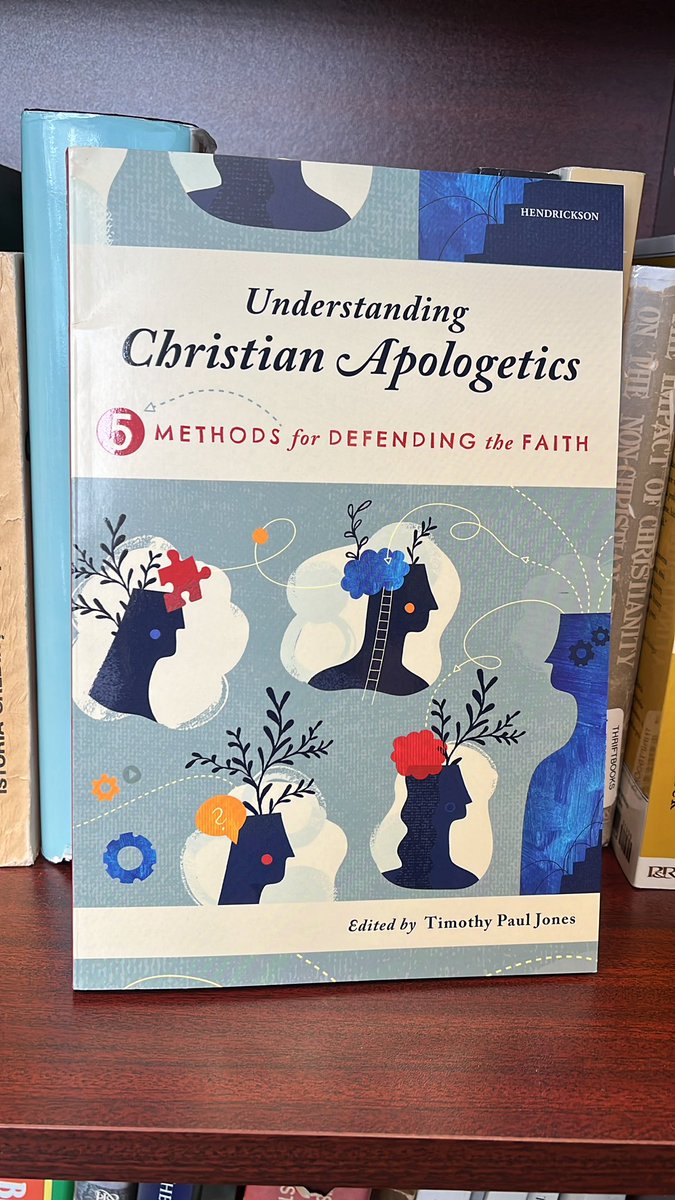
Nathan Shannon
@NateShannonWTS
Global Ministries, Apologetics and Systematic Theology @WestminsterTS | PCA TE
My buddy Jerry shares his years of ministry experience on this excellent podcast: Walking Alongside People in Their Pain with Jerry McFarland youtu.be/TzEL4I-W--I?si…
"Las obras redentoras de Dios se relacionan con la palabra escrita de Dios como el corazón se relaciona con la sangre. Las obras de Dios son los latidos que permiten a las palabras circular y alimentar cada miembro del cuerpo de Cristo." - un estudiante @WestminsterTS
I wrote a brief review of this for the newest @MBTS Journal, pp. 106-109, here! mbts.edu/resources/jour…
"nadie sabe quién es el Hijo sino el Padre, ni quién es el Padre sino el Hijo, y aquel a quien el Hijo se lo quiera revelar." "no one knows who the Son is except the Father, or who the Father is except the Son and anyone to whom the Son chooses to reveal him.”
Attending seminary has been a RESPITE amid trials | @WestminsterTS youtu.be/pYo_dh8tedk?si…
Just released: James 3 with @brandondcrowe on the Westminster Podcast @WestminsterTS Spotify: open.spotify.com/episode/7ebtCF… Apple: podcasts.apple.com/us/podcast/mat…
Bavinck also notes that Reformed theologians preferred “good works” rather than “virtues.” Given this distinction between theological and philosophical ethics, Bavinck goes on to conclude that “the best virtues are splendid vices.” See RE 1.155-161
“The Reformation introduced another basis for morality…[as] Scripture was considered the only source of moral knowledge. As a result, philosophical ethics was taken to be essentially different from Christian ethics, which acquired its own basis, content, and purpose.” RE 1.6
How strange it is that *virtue* has nearly disappeared from systematic theologies today. Not so with the Great Tradition. Bavinck has wise words: *We can profit from Aristotelian thought, and without doubt Aristotle's ethics is basically the best philosophical ethics.*
"Knowledge is here, therefore, taken disparagingly, in a bad sense, for that wretched experience which man, when he departed from the only fountain of perfect wisdom, began to acquire for himself." Calvin on "the tree of the knowledge of G & E"
"the tree of knowledge of good and evil . . . was prohibited to man . . . that he might not . . . by trusting to his own understanding, cast off the yoke of God, and constitute himself an arbiter and judge of good and evil." John Calvin
"Culture" is a word we use to try to encapsulate tendencies or patterns identifiable in all that the human being does in response to God, God’s presence, and God’s design. I very much enjoy teaching Christianity and Culture at @WestminsterTS
«Mi preocupación es que la exigencia de no contradicción, llevada a su conclusión lógica, reduce la verdad de Dios a la verdad del hombre». @KeesVanTil Christianity Today (1977)
“My concern is that the demand for non-contradiction when carried to its logical conclusion reduces God’s truth to man’s truth.” @KeesVanTil Christianity Today (1977)
Recorded an excellent interview with @WestminsterTS prof Iain Duguid on his new book with @crossway Watch for it soon on the Westminster Podcast

Looking forward to reviewing this for @TGC @Themelios_TGC

los que esperan en el Señor renovarán sus fuerzas; se remontarán con alas como las águilas, correrán y no se cansarán, caminarán y no se fatigarán.
Part 2 of our new series on James from the Westminster Podcast! Hear more from @brandondcrowe and @NateShannonWTS: podcasts.apple.com/us/podcast/the…
Concluyendo nuestro estudio de teologia biblica @CTBLatam

Posting this once again: A Van Til Glossary, co-authored with @Presuposicional academia.edu/128026718/A_Va… and in Spanish:
